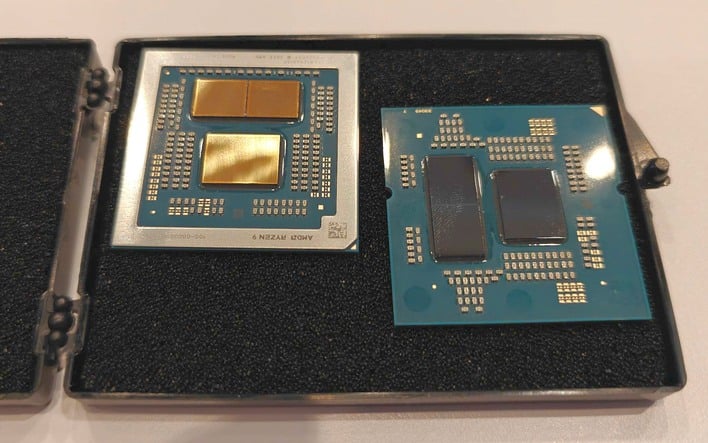AMD Reveals Real Reason It Won't Put 3D V-Cache On Multiple CCDs
That's not the case, though; AMD was very careful to put the kibosh on those ideas at CES 2025. In fact, the company went even further, explicitly explaining that not only has it never made a processor like that, but it probably never will, and the reason isn't technical or manufacturing-related. No, the actual reason AMD won't make a dual-V-Cache chip is much simpler: it would be pointless and a waste of money.

Even in the case that you had a game that saw great gains from the stacked cache and also scales out to more than eight cores, you would likely be suffering more inter-CCD latency than you gain from the extra cores. In other words, there's a reason the Ryzen 7 7800X3D generally matches or even outperforms the Ryzen 9 7950X3D in games: because adding on more cores doesn't help anything (for gaming).
It's nice to see AMD finally make this statement definitively so people will stop wildly fantasizing about a CPU that would ultimately serve them worse than the asymmetric Ryzen 9 7950X3D and Ryzen 9 9950X3D (due to the reduced core clocks). AMD made this explanation to the boys over at German-language hardware site HardwareLUXX; you can head over there to their commentary.


